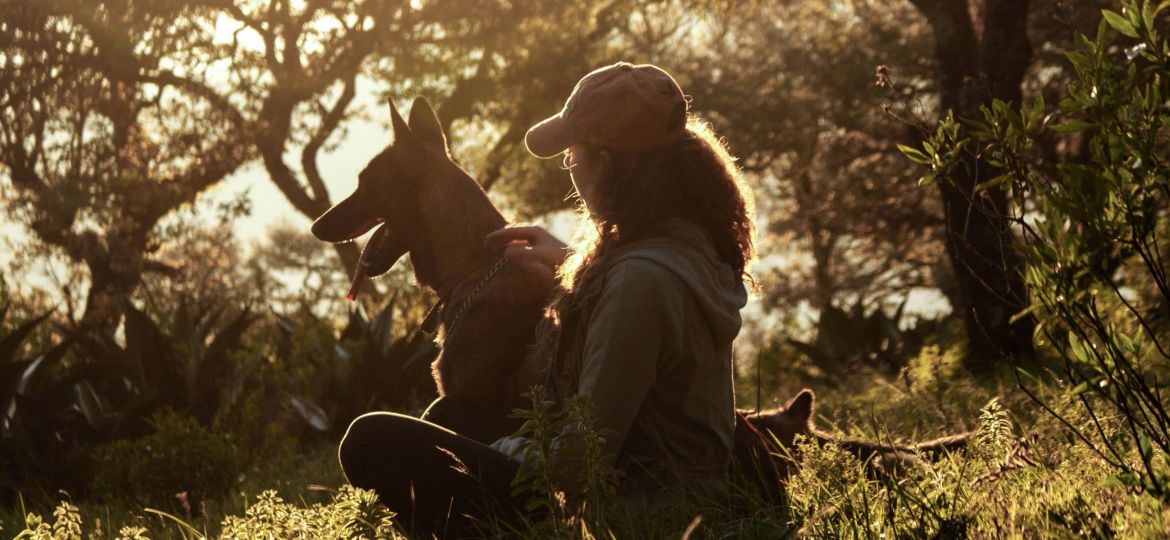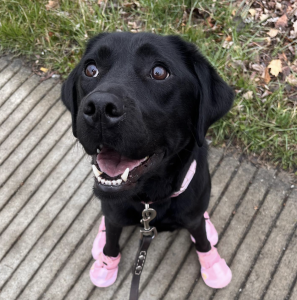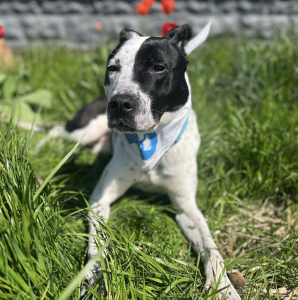
Growing up homeschooled, Atlanta native Lydia Wood gravitated to animals in social settings.
“I’d be the person at parties in the corner with the dog,” she explained. “It’s where I felt most comfortable.”
From a young age, Wood knew she wanted to be a dog trainer, and she wasted no time pursuing this dream. By 18, Wood was a certified dog trainer; by 19, she already had her idea for the Freedom K9 Project.
While she was familiar with service dogs, the only dogs she was aware of that were specifically trained in PTSD were service dogs matched with veterans.

“I’d heard a presentation on human trafficking, specifically sex trafficking, and I started thinking more about all of the people I know personally who are survivors of sexual trauma, relationship trauma, and domestic violence,” Wood said. “I figured there had to be PTSD service dogs for survivors of sexual abuse.”
After extensive research, however, Wood realized there was not yet an organization that centered around training and matching service dogs specifically to the needs of survivors of sexual abuse. Thus began her journey to relocating to Indianapolis and beginning the Freedom K9 Project.
“Once I realized I wanted to start a business, I researched the best places to pursue entrepreneurship,” Wood said. “Indy seemed to be the perfect fit – it’s affordable, nonprofits thrive here, and there are many successful young entrepreneurs. Looking back, it’s one of the best things I’ve done for myself.”
The Freedom K9 Project’s first two dogs matched to survivors were brought in as puppies for training in 2020, and they were placed after graduating from training in 2022.
“Pairing the right dog to the right survivor is at the core of what we do, and while I’d love to say we have a perfect formula for matching survivors to dogs, it really boils down to a feeling that can’t be explained,” Wood revealed. “There is a lengthy application process, and we try to match dogs with survivors with traits that balance each other out in ways that challenge each other positively without causing too much tension. The survivor who was paired with our first dog, Genesis, asked us why we chose her as Genesis’ match, and we couldn’t say exactly what it was—it was just a ‘fit.’ It wasn’t long after she took Genesis home that she came to us and said, ‘I get it.’”

After two successful initial matches, Freedom K9 Project’s waitlist has grown to more than 4,000 survivors looking to be matched with a service dog.
“I’ll know I’m doing my job well when other organizations like this pop up,” Wood said. “I want competition because we all have a common goal: supporting survivors.”
One of Freedom K9 Project’s primary goals is to educate the general public about the organization’s niche work.
“There is a common misconception that PTSD service dogs are only for veterans,” Wood said. “People like to say, ‘Oh, your job is so cute,’ but it’s so much more than that. It’s changing lives, and people are starting to see that.”
A committed team behind Freedom K9 Project works together to bring the vision to life and comfort survivors.
“We have an amazing group of volunteers, board members, and trainers, none of whom get paid a cent for what we do,” she said. “The survivor who received Genesis wrote into Crime Junkie last year, which allowed for us to be featured on the show,” she said.
To support Freedom K9 Project, Wood encourages people to volunteer (even remotely!) or donate to the project’s fund.
“Since none of us get paid, money from donations truly goes a long way,” Wood explained. “We have no office, so the money goes straight to what the dogs need.”
When looking toward the future, Wood has big dreams for Freedom K9 Project.
“I’d love for us to be a national organization with satellite offices and the ability to write applications for and accept million-dollar grants,” she raved. “There is such a need for this type of organization and our team has so many dreams for the future—and we need people to learn about who we are and get involved with the Freedom K9 Project to meet these goals.”
For more ways to support the Freedom K9 Project, visit the Freedom K9 Project website.
Kylie Stine is an Indy Maven contributor who shares a deep love for animals. She lives in Zionsville with two cats and knows firsthand how comforting it is to know she is less than five minutes away from her parents’ two dogs if she needs them.
All of our content—including this article—is completely free. However, we’d love you to consider supporting our journalism with an Indy Maven membership.



